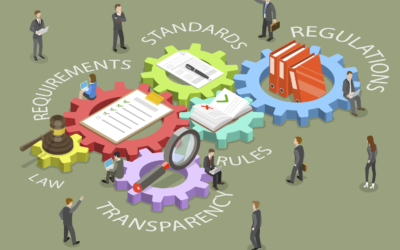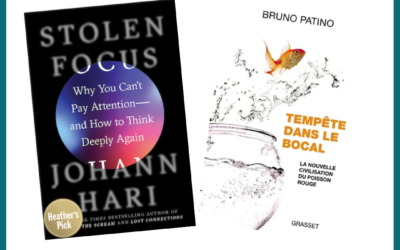Tech companies like Google (Alphabet) and Facebook (Meta) have become giants and have had a free ride evolving in an unregulated context for the past 25 years. While producing easy to use and often free products that charm consumers , they’ve been able to prosper and disrupt entire economies without abiding by a number of laws: those related to copyright, consumer protection, children’s rights, antitrust or privacy. They’ve often avoided paying taxes too. All around the developped world, countries, states and provinces have started reacting to the ‘World Wild Web‘ state of things by enacting regulation of Tech giants.
While they react, with governmental speed, know that we offer digital citizenship workshops and conferences for children, teachers and parents or guardians in Canada to guide them on today’s unregulated digital world. It is necessary, as today’s adults over 30 did not grow up with the digital technology prevalent today, and a majority of children are using technology without adult oversight or protections in place.
Below, we attempt to recap actual or proposed regulation of Big Tech in the following regions :
- France and Australia’s legislation to compensate traditional media for their content
- the European Union’s 2016 GDPR privacy legislation and the 2022 DMA and DSA acts
- California’s 2018 CCPA privacy law and proposed children’s protection law
- Quebec’s 64 privacy law ( 2022)
- Canada’s 2022 C-11 and C-18 laws addressing Canadian content and its proposed federal C-27 law on privacy and AI
- the United States’ various federal proposed but yet unpassed laws S-2333, the ” American Data and Privacy Act”, the “Kids Online Safety Act” and the “American Innovation and Choice Online Act”
The new acronym for these web giants in 2021 is MAMAA, for Meta (formerly Facebook), Amazon, Microsoft, Apple, Alphabet (formerly Google). Netflix, which was in the top tier, has lost its place. Notice the tendency of these giants to change their names, when they want to evolve from their original product.
The only concern in these efforts to regulate digital players is that publishers of video games and related platforms such as Discord and Roblox are relatively free to break advertising and gambling laws without worry.
In France: The July 24, 2019 Law on Copyright and Neighboring Rights of the Press
France was the first country to transpose the “neighboring right” introduced by a European directive on copyright adopted on March 26: on Tuesday, July 23, 2019, deputies voted, by 81 votes to one, the proposed law giving the press the right to negotiate with platforms such as Google, Facebook or Twitter compensation for the use of excerpts of articles and videos. “It’s a speed record,” says a pleased Pierre Louette, CEO of Les Echos-Le Parisien group and leader of a working group on neighboring rights within the General Information Press Alliance.
Has the French Law of 2019 produced results for the press?
As a result of this law, in November 2021, Google reached an agreement with Agence France-Presse to pay for five years to use its content online. This is the first “neighboring rights” partnership entered into by a news agency.
The agreement “covers the whole EU [European Union], in all AFP’s languages, including in countries that have not transposed the directive,” said Agence France-Presse CEO Fabrice Fries on Wednesday 17 November, describing the agreement, which has been negotiated over the past 18 months, as “pioneering”. AFP produces and distributes multimedia content in six languages to its clients in France and around the world.
On the other hand, the agreement with Google is to be completed “very soon” by “a program dealing with the fight against disinformation”, said the two companies in a joint statement. AFP will offer training in fact-checking.
In his message to employees, Fabrice Fries added that Google would “thus become one of the agency’s very first clients, alongside Facebook”. The American group Meta, owner of the social network, pays more than 80 media outlets worldwide, including AFP, for a content verification program.
But it’s not all plain sailing. After having initially been reluctant to pay French newspapers for the use of their content, Google ended up signing a framework agreement at the beginning of the year, which has since been suspended, with part of the French press for a period of three years. In mid-July, the French Competition Authority imposed a fine of 500 million euros on Google for not having negotiated “in good faith”. Google has appealed and is continuing negotiations with some French media groups.
Facebook also announces agreements on neighbouring rights
For its part, Facebook announced in October 2021 several agreements, including a framework agreement with the Alliance for the General Information Press, which provides for two years of remuneration to French daily press publishers for the use of their content. This agreement provides for the participation of these publishers in Facebook News, a service dedicated to news, already launched in the United States and the United Kingdom, and which Facebook was to deploy in France in January 2022.
In Australia, a February 2021 Law on the Compensation of the Press by Big Tech
After months of intense tension, Australia has managed to find common ground with Google and Facebook. From now on, there is an Australian model for managing the issue of neighboring rights.
The Australian parliament adopted on February 25, 2021, the law forcing digital giants to pay the media for the use of their news content.
The text was adopted two days after the conclusion of an agreement with Facebook that would invest at least 1 billion dollars in news content over the next three years. Google had also signed a similar agreement. However, the two web giants initially opposed the law.
The government said the law would ensure that the media “are fairly compensated for the content they generate, helping to sustain public interest journalism in Australia.
Canada’s Online News Act became law in June 2023, sparking mafia-like reactions from Big Tech
It was this Australian law that inspired the Canadian government to create Bill C-18. This Online News Act for Canada became law in June 2023. Read here about my take on Bill C-18 and Meta and Google’s reactions to stop publishing Canadian news content in response.
In Europe: GDPR in 2018, then DMA and DSA in 2022 regulate MAMAAs
The European Union got a head start in the West towards regulating Big Tech, with its GDPR law ( General Data Protection Regulation), passed in April 2016 and implemented since May 2018. This law explains the pop-ups we see on the sites we visit since then, asking us (or not, depending on the region) for our consent to be tracked by the spy files nicely named “cookies”.
The EU went on in 2022 to pass two major laws regulating the web giants, the MAMAA: the DMA (Digital Market Act) and DSA (Digital Services Act). They both aim to regulate the excesses of the web giants beyond the preservation of our privacy by 2023.
The DSA aims to ensure online the existing rights of citizens offline, at the level of the European Union countries.
The DMA aims to promote a truly competitive, fair and innovative space for all businesses in the European Union by tackling the monopolistic actions of the MAMAA.
The European Union DSA: Digital Services Act aims to ensure online the same rights as citizens have offline
[Source: Wikipedia] The DSA is meant to improve content moderation on social media platforms to address concerns about illegal content. It is organised in five chapters, with the most important Chapters regulating the liability exemption of intermediaries (Chapter 2), the obligations on intermediaries (Chapter 3), and the cooperation and enforcement framework between the commission and national authorities (Chapter 4).
The DSA proposal maintains the current rule according to which companies that host other’s data are not liable for the content unless they actually know it is illegal, and upon obtaining such knowledge do not act to remove it. This so-called “conditional liability exemption” is fundamentally different from the broad immunities given to intermediaries under the equivalent rule (“Section 230 CDA“) in the United States.
In addition to the liability exemptions, the DSA would introduce a wide-ranging set of new obligations on platforms, including some that aim to disclose to regulators how their algorithms work, while other obligations would create transparency on how decisions to remove content are taken and on the way advertisers target users.
A November 16, 2021 Internet Policy Review listed some of new obligations including mandatory “notice-and-action” requirements, for example, respect fundamental rights, mandatory redress for content removal decisions, and a comprehensive risk management and audit framework.]
A December 2020 Time article said that while many of its provisions only apply to platforms which have more than 45 million users in the European Union, the Act could have repercussions beyond Europe. Platforms including Facebook, Google’s subsidiary YouTube, Twitter and TikTok would meet that threshold and be subjected to the new obligations. Companies that do not comply with the new obligations risk fines of up to 10% on their annual turnover.
The European Union DMA aims to make the online sector fairer and more accountable
[Source: Wikipedia] The Digital Markets Act sets up a list of conducts that should be outlawed, on the one hand, and obligations that platforms identified as Gatekeepers should respect, on the other hand. The list is divided in two different parts, the general blacklisted actions (Article 5) and the case by case assessment that needs to be specified (Article 6).
The different ways of defining obligations and prohibitions have raised several debates between scholars and stakeholders. Some experts support the approach focused on balancing anti-competitive effects with possible justifications, while others are in favour of banning specific practices from the beginning. Professor De Streel classified the new obligations as concerning the following common areas:
- Transparency in ad intermediation
- Envelopment through bundling or self-preferencing access platforms and data
- End-users’ and business users’ mobility
- Limitation of unfair practices
Those practices are often derived from the past case-law and are considered unfair by the European Commission. Therefore, this proposal uses “ex-post” cases to create new “ex-ante” regulations and to tackle the issue from the roots.
Québec’s Bill 64 Updated Privacy Legislation
New Québec privacy law requirements respecting the management of personal information within the private sector come into force starting in 2023 through September 2024. These new requirements follow the adoption of Bill 64 in 2022—An Act to modernize legislative provisions as regards the protection of personal information.
Québec is the first jurisdiction in Canada to update its privacy legislation, bringing it closer in line with the landmark European Union’s General Data Protection Regulation. Every organization doing business in Québec that processes personal information needs to understand the new requirements to ensure compliance.
California Privacy Law CCPA
The complexion of California privacy laws changed dramatically with the 2018 passing of the California Consumer Privacy Act (CCPA). As the first comprehensive data privacy law in the US, the CCPA marked the dawn of a new age of privacy laws across the United States and led to other states introducing similar consumer privacy laws. The introduction of the CCPA has meant covered businesses are now required to operate under strict obligations as to how they handle, sell, and share the personal information of Californian residents, who themselves have been prescribed a number of consumer privacy rights relating to how their data is used.
More on CCPA from the state of California.
Canada’s Bill C-27 aims to revamp Privacy law and Introduce AI Law:
This is a projected legislation Canada’s federal government reintroduced in 2022 after a failed attempt in 2020. It is still in discussion in July 2023.
- The Consumer Privacy Protection Act would repeal and replace Part 1 of the Personal Information Protection and Electronic Document Act. Part 2 of PIPEDA will be renamed to “An Act to provide for the use of electronic means to communicate or record information or transactions,” or the Electronic Documents Act.
- The Personal Information and Data Protection Tribunal Act would establish an administrative tribunal to review certain decisions made by the Privacy Commissioner of Canada and make orders for contraventions of the CPPA.
- The Artificial Intelligence and Data Act, which is new and perhaps unanticipated by many, will regulate international and interprovincial trade and commerce in artificial intelligence systems by establishing common requirements, applicable across Canada, for the design, development and use of these systems.
More from the IAPP on Canada’s proposed C-27 law
Canada’s Bill C-11 Levels the Playing Field between Online Streaming and Traditional Broadcasting:
Canada’s Bill C-11 , otherwise known as the Online Streaming Act, seeks to get online streamers like Spotify, Netflix and YouTube, to fund and promote Canadian content, just like traditional broadcasters. This is a way to level the economic playing field between foreign content providers and local Canadian producers. It also seeks to protect and promote the country’s musical cultural heritage.
Here is what Kate Taylor from the Globe and Mail says after Bill C-11 passed in April 2023:
And so, more than a decade after it became apparent that internet-based streaming would bypass Canadian-content rules, the federal government has finally fought off the skeptics and naysayers to regulate foreign services. The Online Streaming Act, the first update of the Broadcasting Act since 1991, became law Thursday.
For those who have followed this file since Netflix first entered the Canadian market in 2010 and rapidly signed up a million subscribers, it is hard to know what’s more amazing: that it took this long or that it even happened at all.
Read more here.







